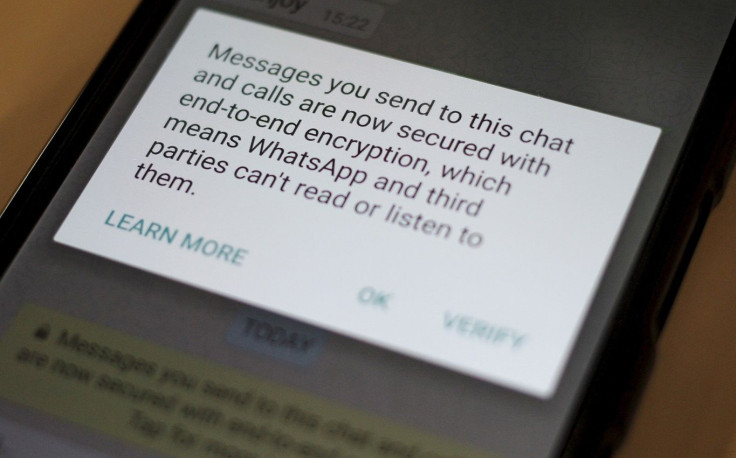WhatsApp announces end-to-end encryption, promises total user privacy

WhatsApp is following Apple’s lead and encrypting its messages for privacy issues. The Facebook-owned messaging app has added an end-to-end encryption to all forms of its communication services.
“Messages you send to this chat and calls are secured with end-to-end encryption,” a message on the app reads. The encryption is automatically set up on users’ settings.
This means that no one can read the conversations between the sender and the receiver, not even WhatsApp itself. It is expected to prevent cybercriminals, hackers and third party groups from encroaching on the user’s privacy, “sort of like a face-to-face conversation.”
While that sounds great to users, WhatsApp is expected to go head-to-head with governments if there’s security concern. And like its parent company, the messaging service believes in digital privacy.
Read: FBI cracks iPhone security without Apple’s help
“Encryption is one of the most important tools governments, companies and individuals have to promote safety and security in the new digital age. Recently there has been a lot of discussion about encrypted services and the work of law enforcement. While we recognise the important work of law enforcement in keeping people safe, efforts to weaken encryption risk exposing people’s information to abuse from cybercriminals, hackers and rogue states,” founders Brian Acton and Jan Koum wrote on the WhatsApp blog.
“The desire to protect people’s private communication is one of the core beliefs we have at WhatsApp, and for me, it’s personal. I grew up in the USSR during communist rule and the fact that people couldn’t speak freely is one of the reasons my family moved to the United States,” Koum, who was born in Ukraine, wrote.
Apart from cybercriminals and hackers, the move to add end-to-end encryption will also help ensure that all conversations are not used for advertising. WhatsApp does not store messages in its servers once the messages are delivered. This process also goes for calls, preventing third parties from listening to them.





















